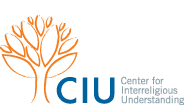Sharia/Halacha Conference
“At least 20 states are seeking to ban Sharia, a legalization of Islamophobia. Understanding the commonality and differences in our texts goes far in explaining why attacks on Sharia are also attacks on all religious law and religious freedom.” – Rabbi Jack Bemporad
“It seemed to me that with all of this hullabaloo about the state of Shariah and American law, it was a very propitious moment to think about the commonalities and differences between Shariah and Halacha. A threat to one minority is a threat to others.” – Professor Marshall Breger

(l to r) Professor Ebrahim Moosa, Rabbi David Silber, Rabbi Jack Bemporad, Professor Kecia Ali, Imam Mohamed Hag Magid, Professor Josef Stern and Rabbi Shaul Robinson
MUSLIM AND JEWISH PERSPECTIVES ON THE INTERPRETATION OF FOUNDATIONAL RELIGIOUS TEXTS
How influential are the ancient religious texts in our daily lives today? In a word, they are everything. In response, in an unprecedented meeting, 40 of the country’s foremost minds in Sharia (Muslim law) and Halacha (Jewish law) met in a closed-door morning conference that was later opened to the public and press on the afternoon of October 30th, 2011 at Temple Emanu-El in New York City. Moderated by Rabbi Bemporad, these Muslim and Jewish scholars gathered to find ways of interpreting and re-interpreting foundational texts to provide a better understanding of and relationship with “the Other.”
From the Golden Rule to the Ten Commandments and everything in between, our laws, society, and understanding of each other are guided, and at times held captive, by the ancient texts of the Abrahamic faiths. So how they are interpreted today is crucial.
On an historic trip to Auschwitz last summer, eight influential US Imams led by Rabbi Bemporad realized that interfaith dialogue is necessary, but it’s not enough. Leading religious scholars also needed to talk. Muslim-Jewish dialogue is in its early stage, and the need to understand and use foundational texts to improve relations is fundamental. And urgent: with the rise of Islamaphobia and proposals to ban Sharia in at least 20 states, legislated religious phobia is only a vote away. Understanding the commonality and differences in our texts will go far in explaining why attacks on Sharia are also attacks on religious law and religious freedom.
The Public Program:
INTRODUCTION
Prof. Marshall J. Breger, Interdisciplinary Program on Law and Religion, Columbus School of Law, Catholic University of America
PRESENTERS:
Rabbi David Silber, Drisha
Prof. Kecia Ali, Boston University
PANEL RESPONDERS:
Imam Mohamed Hag Magid, All Dulles Area Muslim Society, VA and President Islamic Society of North America
Prof. Ebrahim Moosa, Duke University
Prof. Joseph Stern, University of Chicago
Rabbi Shaul Robinson, Lincoln Square Synagogue
MODERATED BY:
Rabbi Jack Bemporad, Center for Interreligious Understanding
Press:
The Context of Text (The Jewish Standard)
Exploring Ties Between Sharia and Halacha (The Jewish Daily Forward)
